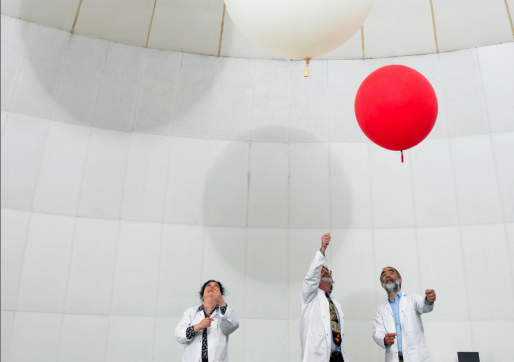Desperate times breed desperate measures, and for climate alarmists these are desperate times.
There has been no measurable global warming for 18 years. The majority of polar bear populations are stable or growing; hurricane landfalls have been virtually nonexistent in the United States for a decade; cold temperature and snowfall records are being set daily (more than 2,600 cold temperature records were set or broken between February 19 and February 25 of this year alone); Antarctica is setting sea ice records in the middle of its summer; and in the Arctic, the much ballyhooed sea ice decline of the late 1990 and early 2000s has recovered over the past two years.
By almost every metric, the predictions made by climate change believers have failed or are failing, and reasons for climate alarm are fading from view as a result.
Perhaps this explains climate alarmists’ desperate attempts to smear the reputations of climate researchers who scientifically reject any aspect of the “human-catastrophic-climate-change-connection.”
The latest salvo in this desperate gambit comes from Rep. Raul Grijalva (D-AZ), ranking member of the House of Representatives Committee on Environment and Natural Resources. He sent a letter to seven university presidents demanding information on funding sources and all draft testimony and exchanges relating to the testimony of select researchers who have testified before Congress on climate change issues and did not express an alarmist view.
Grijalva’s original letter asked about the climate research and funding for seven scholars: geographer Robert C. Balling Jr., Arizona State University; atmospheric scientist John Christy, University of Alabama; climatologist Judith Curry, Georgia Institute of Technology; historian Steven Hayward, Pepperdine University; climatologist David Legates, University of Delaware; atmospheric physicist Richard Lindzen, Massachusetts Institute of Technology; and political scientist Roger Pielke, Jr., University of Colorado.
As one of the targets of Grijalva’s probe, Legates points out, “Grijalva was asked why he targeted the seven of us. His response was we were the most well-published, most often-cited, and had the most impact on public policy in the United States. Not that our research was likely fraudulent, not that we had taken big sums of money from foreign governments, or that we simply had been publishing bad research. None of these were the reason. It was simply we are too effective with our research and too persuasive with our arguments. Pure and simple. And since we disagree with him and his views, we must be harassed. Maybe that will stop us.”
Pielke, a researcher who accepts that humans contribute to global warming but does not believe a modest warming signifies disaster, has repeatedly testified under oath before Congress he never received any funding from fossil-fuel companies. Pielke wrote, “I know with complete certainty that this investigation is a politically-motivated ‘witch hunt’ designed to intimidate me and to smear my name.”
Tired of years of abuse, Pielke is bowing out of further climate research.
The American Meteorological Society, the national scientific society for research in atmospheric, oceanic, and hydrologic sciences, added its voice to the growing chorus defending scientific freedom of enquiry and speech with its own letter to Grijalva. The letter, written by AMS Executive Director Dr. Keith L. Seitter, states, “Publicly singling out specific researchers based on perspectives they have expressed and implying a failure to appropriately disclose funding sources — and thereby questioning their scientific integrity — sends a chilling message to all academic researchers.”
Seitter continued, “Further, requesting copies of the researcher’s communications related to external funding opportunities or the preparation of testimony impinges on the free pursuit of ideas that is central to the concept of academic freedom.”
Even some climate alarmists believe Grijalva has gone too far. Bob Ward, policy director for the Grantham Research Institute on Climate Change and the Environment, a frequent critic of climate skeptics, tweeted, “Politicians should not persecute academics with whom they disagree. No ifs or buts.”
Climate alarmist organizations and scientists had better hope public scrutiny does not turn to their funding sources. Climatologist Judith Curry has asked, “Are we not to be concerned by funding from green advocacy groups and scientists serving on the Boards of green advocacy groups?”
Pielke tweeted, “Once you tug on the thread of undisclosed financial interests in climate science, you’ll find it more a norm than exception.”
In fact, according to Imablawg, Rep. Grijalva, the self-appointed climate witch finder general, has taken $78,854 from environmental lobbying groups.
I’d like to propose a solution: Let’s all stick to an honest debate concerning the scientific and economic issues of climate change and stop the mudslinging, yellow journalism, and political harassment.
[Originally published at the Daily Caller]





